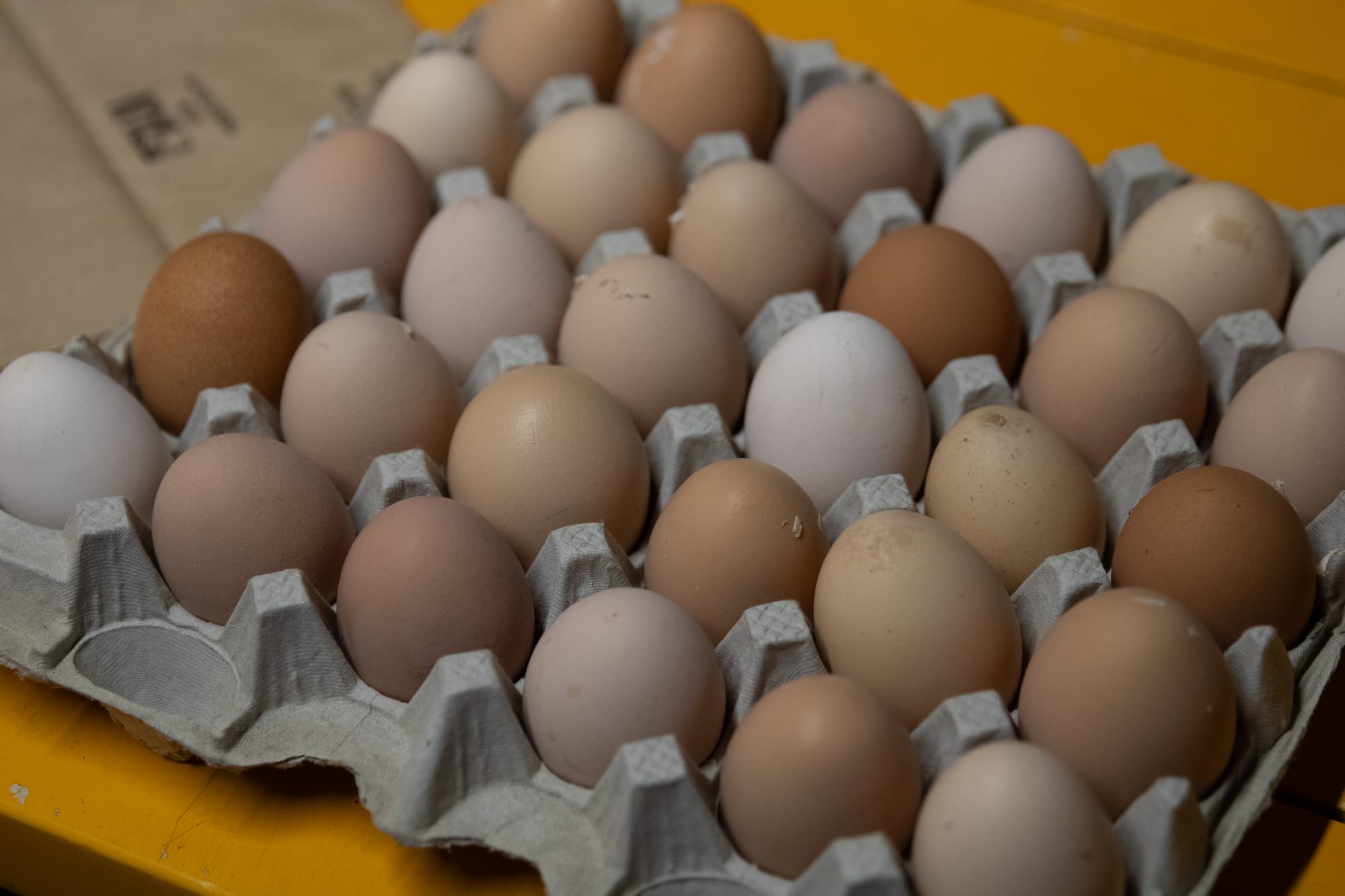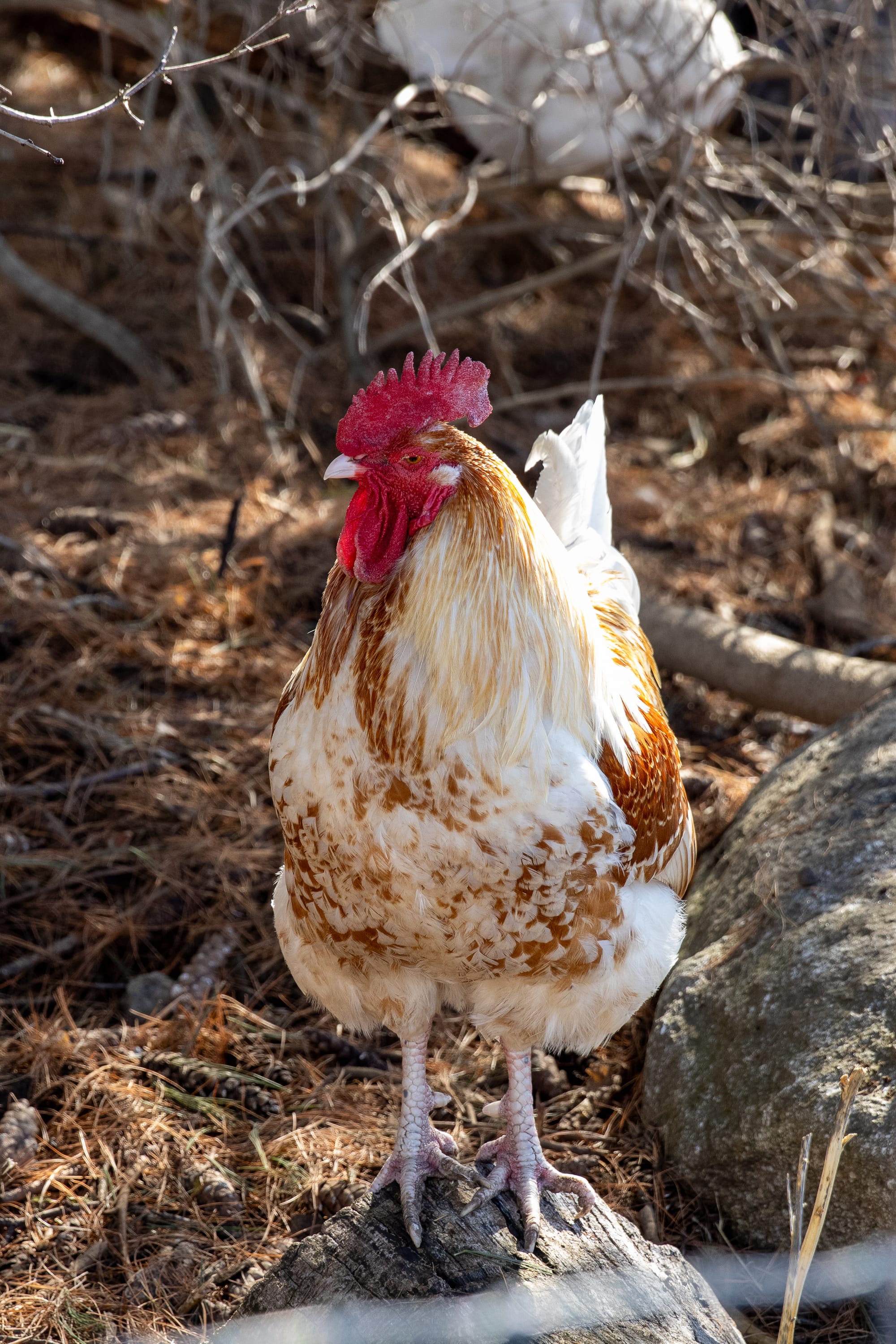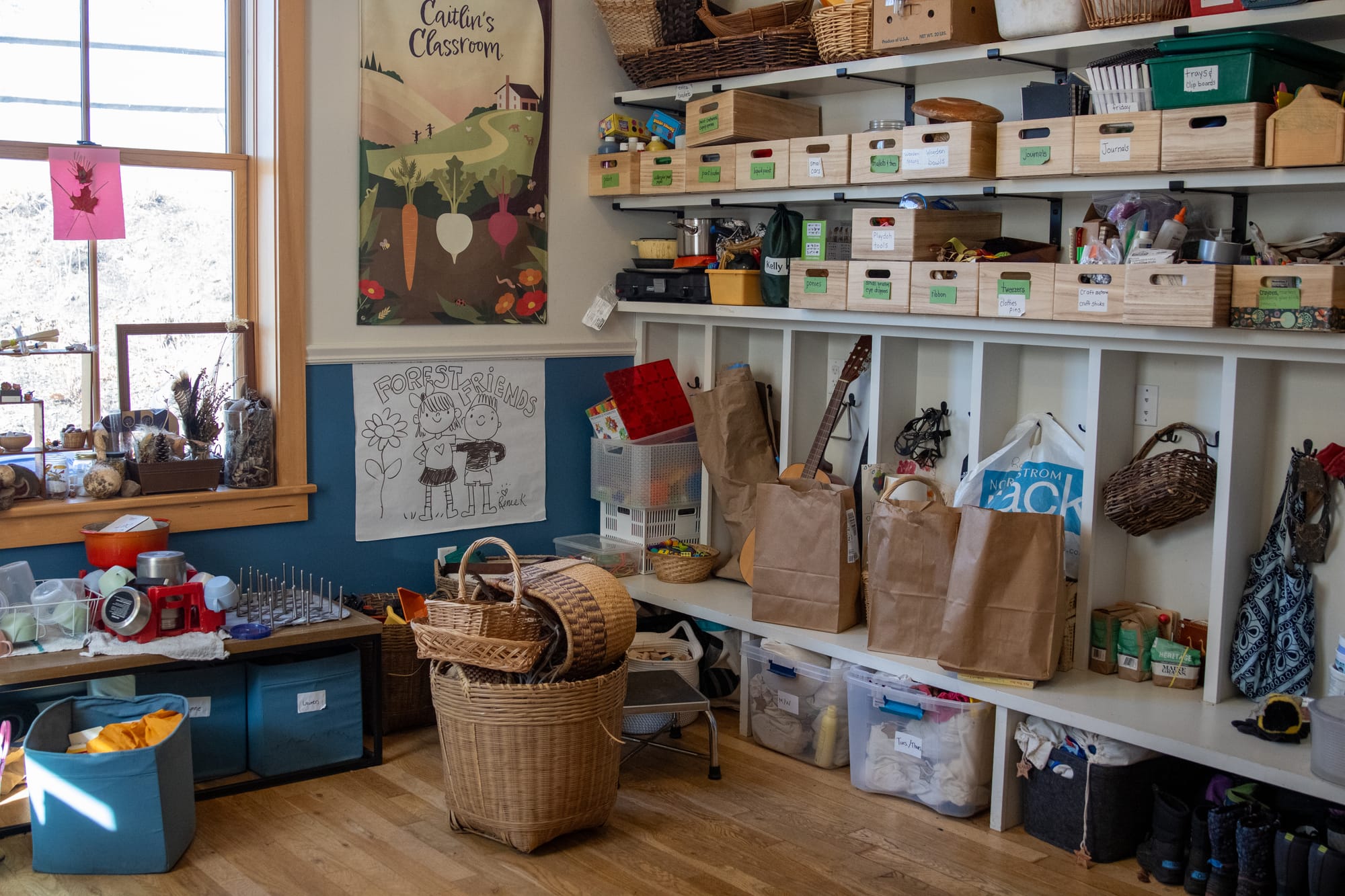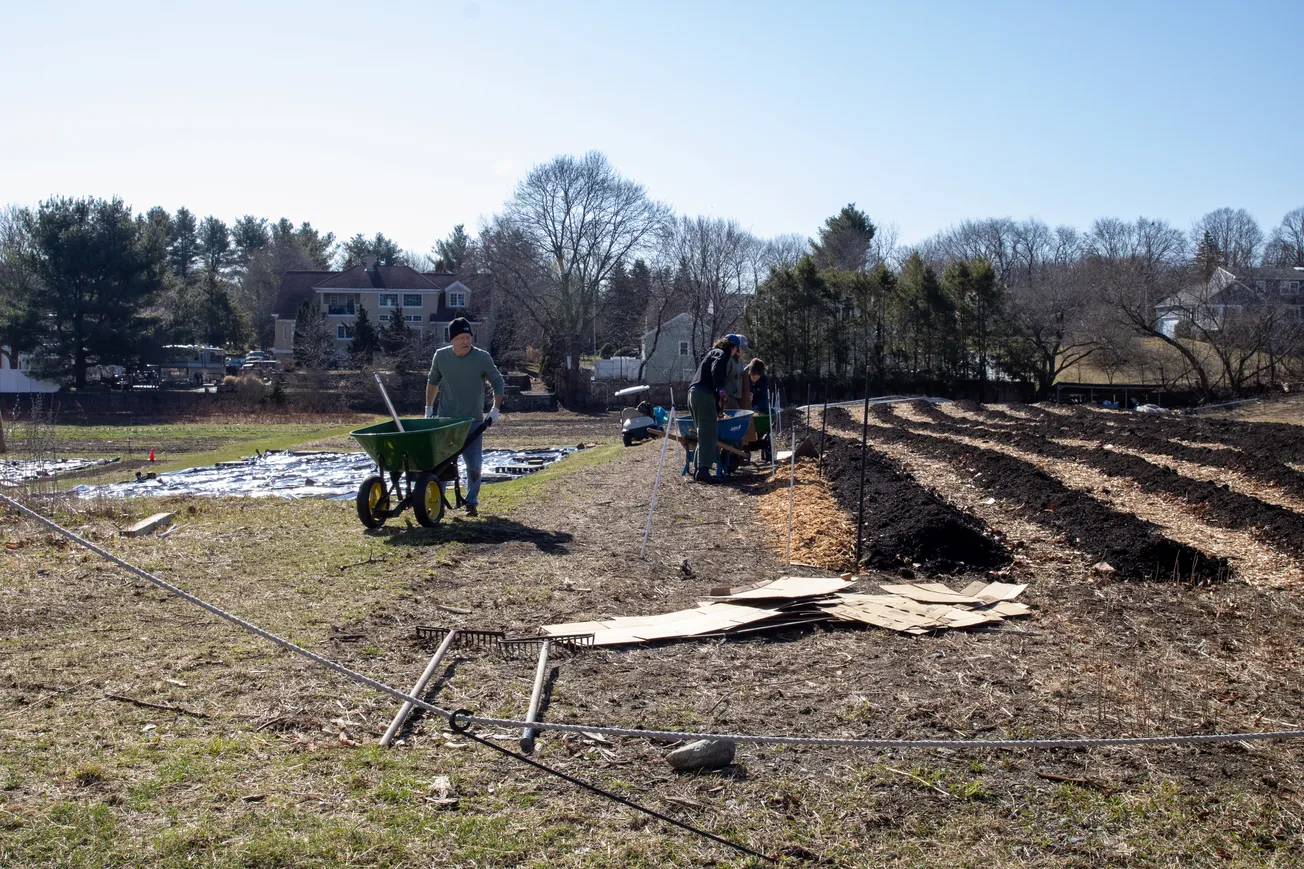Table of Contents
The Trump administration is gutting funding for farms and agricultural programs across the country, but Winchester’s Wright-Locke Farm is largely insulated from those cuts, because it relies almost exclusively on sales and donations.
With federal funding freezes and mass layoffs in the U.S. Department of Agriculture, local farms face an uncertain future. Town-owned Wright-Locke is unlikely to be hurt by federal cuts, though, as long as people keep donating, shopping and volunteering there, said the farm’s manager, Adrienne Altstatt.

“We rely a lot on the community for all of the offerings we give the community, which is a lot,” said Tracy Kinsey, Wright-Locke’s communications and outreach coordinator. “We also rely on the community to support us, through donations, through volunteering, to keep the farm sustainable and running and not going into the red. We are really proud of the fact that we are able to sustain ourselves with our programs that we run with the funds that we raise.”
One funding source that could be threatened is an $18,000 federal grant Wright-Locke was promised for a high tunnel greenhouse the farm recently built. The structure, made of metal hoops and covered with plastic, helps farmers extend the growing season by providing protection from extreme weather, improving soil conditions and increasing crop yields.
“We have spent $18,000 on it already, but have not yet been reimbursed,” said the farm’s executive director, Erika Gorgenyi. “And therefore we are at risk of them not fulfilling this agreement and losing this funding.”

In 2023, 18% of the farm’s revenue came from donations, 81% from program services and the other percent from investment income. Gorgenyi said the farm receives a small grant from the Department of Education.
“One of the biggest challenges that small farms like ours always face, obviously, is funding,” Kinsey said. “It’s not cheap to run an operation like this, so we have to do a lot of fundraising.”
One of the farm’s most significant sources of revenue is Farm to Go, a store that sells local produce, meat, eggs and other grocery items.
Donna von Halle, a Farm to Go regular, shops weekly.
“I know where the food’s coming from, that it hasn’t traveled potentially thousands of miles to get there,” von Halle said. “I think that the food is more nutrient-dense because of that.”

Von Halle orders online at the beginning of the week and picks up the order on Thursdays. She said the convenience of the shop has made grocery shopping easier. On occasion, she asks for recipes to accompany produce.
“They’re so accommodating,” von Halle said. “There’s been times when I’ve even asked for ideas. I remember I said, ‘I don’t really know what I’m gonna do with fennel.’ And you know, Sarah, the one working there, said, ‘Oh, you can do this with it.’ And so those are just experiences that you wouldn't have at a grocery store.”
The land there has been farmed since 1638. It was originally home to the Indigenous Massachusett Tribe and Pawtucket people, who actively managed the environment by cultivating crops like maize, beans and squash.
After colonization led to the displacement of the Indigenous tribes, John Wright purchased the farm. Over time, it passed through the Locke and Wright families. The farm grew blue hubbard squash until it became a raspberry farm under the Hamilton family.
The land was targeted for development in 2007, following the death of owner Curtis Hamilton. In response, the residents of Winchester voted to acquire the entire 20 acres for $14 million, blocking a developer's plan to build 260 housing units there. The town set aside 7.5 acres for preservation and 12.5 acres for potential development.


Fresh eggs right from the source. WINCHESTER NEWS STAFF PHOTOS/DANIELLE KRANTZ
Community members created the nonprofit Wright-Locke Farm Conservancy to manage the property. Efforts shifted toward fundraising to secure the preservation of the remaining 12.5 acres, leading to an $8.6 million campaign to purchase the property. The Conservancy has a 30-year lease on the land that expires in 2041.
“It was mainly community members that really stepped up and said, ‘Hey, now, Wright-Locke Farm’s doing such great things with their education programs and all these other things. We need to protect that and give them more bandwidth,” said Kim Kneeland, the farm’s associate director. “And so, a couple years later, we were able to buy the land.”
The newest addition to Wright-Locke Farms is All-Seasons Barn, an indoor event space designed to support the farm’s programming, which broke ground in 2021. According to Kneeland, the building cost around $3.5 million.

The farm also contributes to the larger New England food chain. Farm to Go, which accepts SNAP and EBT, sells food from other small farms and vendors around New England.
“From Needham to Maine to Vermont to Connecticut, we have other small farms that are looking to get their products out to people in the region,” Kinsey said. “And we sort of help act as a local food hub to distribute that.”
The farm participates in “Grow-a-Row,” which allocates a row of fresh produce to local food pantries for donation, Kinsey said.
“Core to our mission is supporting other small farms and small businesses, sort of getting away from the industrial food chain and more turning back time a little bit and going back to local, fresh food,” Kinsey said.
The farm offers educational opportunities, including a year-round, nature-based preschool. Community members can participate in workshops in the historic 1827 Barn or the All Seasons Barn. The farm also hosts free “Farm Talks” on agriculture, environmental, and health topics.

Visitors can plan educational or volunteer group visits from April to October, or arrange off-site enrichment programs on farm-related subjects. The farm also partnered with the Winchester High School environmental science department to cultivate and track a portion of the land.
The farm is open to the public year-round.
“We are open to the public, dawn until dusk, 365 days a year,” Kinsey said. “If you want to come here and take a walk, if you want to come here and listen to a podcast, you can do that. And a lot of people don’t know that.”
This story is part of a partnership between The Winchester News and the Boston University Department of Journalism.








